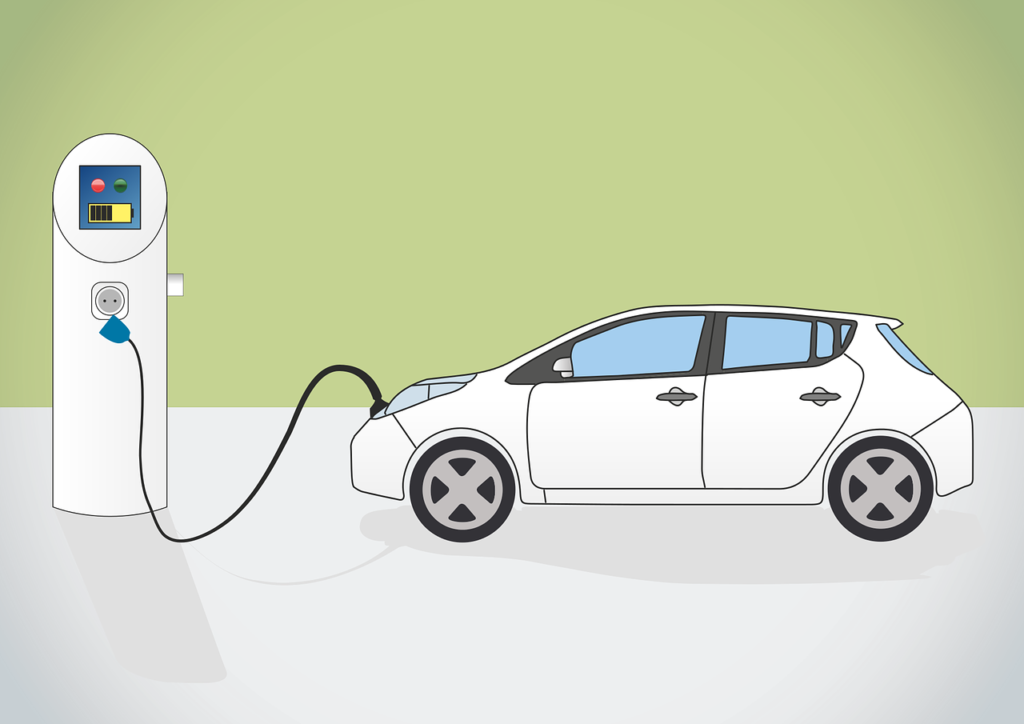
in India, a country known for its bustling streets and vibrant culture, is also making great strides in the field of electric vehicles (EVs).
As the world becomes increasingly conscious of the need for sustainable transportation, India has emerged as a key player in the global EV market.
With a growing population and rising concerns about pollution, the adoption of electric vehicles has gained significant momentum in recent years.
In this article, we will delve into the current landscape of electric vehicles in India, exploring the growth, factors driving adoption, challenges faced by the industry, government initiatives, and future projections.
Contents
- 1 Growth of electric vehicles in India over the years
- 2 Factors driving the adoption of electric vehicles in India
- 3 Challenges faced by the electric vehicle industry in India
- 4 Government initiatives and policies promoting electric vehicles in India
- 5 Current statistics on the number of electric vehicles in India
- 6 Comparison of electric vehicle adoption in India with other countries
- 7 Top electric vehicle models available in India
- 8 Future projections for the electric vehicle market in India
- 9 Conclusion and the importance of transitioning to electric vehicles in India
Growth of electric vehicles in India over the years
Over the past decade, the growth of electric vehicles in India has been remarkable.
In 2010, the country had a mere 500 electric cars on its roads, primarily restricted to limited government initiatives and pilot projects.
However, with advancements in technology and a greater emphasis on sustainability, the number of electric vehicles has surged exponentially.
According to recent data, there are now over 1.5 million electric vehicles in India, marking a significant increase in the adoption rate.
This growth can be attributed to several factors, including the increasing availability of affordable EV models, the expansion of charging infrastructure, and the rising awareness among consumers about the environmental benefits of electric vehicles.
Factors driving the adoption of electric vehicles in India
A multitude of factors has driven the adoption of electric vehicles in India.
Firstly, the government has played a pivotal role in promoting electric vehicles through various initiatives and policies.
The Faster Adoption and Manufacturing of Electric Vehicles (FAME) scheme, launched by the Indian government in 2015, has provided subsidies and incentives to both manufacturers and buyers of electric vehicles.
Additionally, the implementation of stricter emission norms and the push towards reducing dependence on fossil fuels have further accelerated the adoption of EVs in the country.
Secondly, the increasing affordability of electric vehicles has made them more accessible to a wider range of consumers.
As technology has advanced and economies of scale have come into play, the cost of manufacturing electric vehicles has significantly reduced, leading to a decrease in the retail price.
This, coupled with the lower operational and maintenance costs of EVs compared to traditional internal combustion engine vehicles, has made them an attractive choice for many Indian consumers.
Furthermore, the growing concern about air pollution and its impact on public health has also been a driving force behind the adoption of electric vehicles in India.
The country’s major cities, such as Delhi and Mumbai, have been grappling with severe air pollution issues, primarily caused by vehicular emissions.
Electric vehicles, being zero-emission vehicles, offer a sustainable solution to mitigate air pollution and improve overall air quality.
Challenges faced by the electric vehicle industry in India
Despite the significant growth and positive developments, the electric vehicle industry in India faces its fair share of challenges. One of the primary challenges is the need for adequate charging infrastructure.
While the number of charging stations has increased in recent years, there is still a need for widespread infrastructure to alleviate range anxiety and encourage more people to switch to electric vehicles.
The government, along with private players, is working towards expanding the charging network, but it remains a work in progress.
Another challenge is the limited availability of EV models in India. While the market has seen a surge in the number of electric vehicles, the options still need to be improved compared to traditional cars.
The lack of variety and choice can be a deterrent for potential buyers who have specific requirements or preferences.
However, with the growing demand, more manufacturers are entering the Indian market, and it is expected that the variety of electric vehicles will expand in the coming years.
Additionally, the high initial cost of electric vehicles is a barrier to widespread adoption.
Although the prices have decreased in recent years, electric cars still tend to be more expensive than their petrol or diesel counterparts.
The need for a comprehensive and robust support system, including financial incentives and subsidies, is crucial to making electric vehicles more affordable and accessible to the masses.
Government initiatives and policies promoting electric vehicles in India
The Indian government has recognized the importance of electric vehicles in achieving sustainable transportation and has implemented several initiatives and policies to promote their adoption.
The Faster Adoption and Manufacturing of Electric Vehicles (FAME) scheme, mentioned earlier, has been instrumental in providing financial incentives and subsidies to manufacturers and buyers of electric vehicles.
The scheme aims to support the development of a robust EV ecosystem in the country.
In addition to the FAME scheme, the government has also introduced other measures to encourage the adoption of electric vehicles.
These include tax benefits for EV buyers, exemption from road tax and registration fees, and the establishment of dedicated EV corridors.
Furthermore, the government has set ambitious targets for electric vehicle adoption, with a goal to have 30% of all vehicles on the road being electric by 2030.
These initiatives, coupled with the increasing focus on renewable energy, are expected to propel the electric vehicle market in India further.
Current statistics on the number of electric vehicles in India
As of the latest data available, there are over 1.5 million electric vehicles in India. This includes both two-wheelers and four-wheelers.
The majority of electric cars in India are two-wheelers, with popular models such as the Hero Electric Photon and Bajaj Chetak leading the market.
However, the number of electric vehicles is also steadily increasing, with models like the Tata Nexon EV and MG ZS EV gaining popularity among consumers.
It is important to note that these numbers are constantly evolving as the market continues to grow.
Comparison of electric vehicle adoption in India with other countries
India’s progress in electric vehicle adoption is commendable, but it is essential to compare it with other countries to gain a broader perspective.
In terms of sheer numbers, China leads the global electric vehicle market, with millions of electric vehicles on its roads.
This can be attributed to China’s early investments in electric vehicle technology and its robust charging infrastructure.
However, India is catching up rapidly and has the potential to become one of the largest electric vehicle markets in the world.
When it comes to policy and government support, countries like Norway and the Netherlands have been at the forefront of electric vehicle adoption.
These countries have implemented aggressive policies that include tax incentives, toll exemptions, and free parking for electric vehicles.
While India still has a long way to go in terms of replicating such policies, the government’s efforts and initiatives are a step in the right direction.
Top electric vehicle models available in India
As the electric vehicle market in India continues to grow, several models have gained popularity among consumers.
In the two-wheeler segment, the Hero Electric Photon, Bajaj Chetak, and Ather 450X are some of the top models.
These vehicles offer a combination of performance, range, and affordability, making them attractive options for urban commuters.
In the four-wheeler segment, the Tata Nexon EV and MG ZS EV have emerged as popular choices.
These vehicles provide a decent range, comfortable interiors, and advanced features, making them suitable for both city driving and long-distance travel.
With more manufacturers entering the Indian market, the options for electric vehicle buyers are expected to increase, further boosting the adoption rate.
Future projections for the electric vehicle market in India
The future of electric vehicles in India looks promising.
With the government’s ambitious targets, increasing awareness among consumers, and advancements in technology, the electric vehicle market is expected to witness significant growth in the coming years.
According to a report by NITI Aayog, a government think tank, India has the potential to save up to 846 million tonnes of oil equivalent and reduce carbon emissions by 1.5 gigatonnes by 2030 through the adoption of electric vehicles.
These projections highlight the immense benefits of transitioning to electric cars and the positive impact it can have on the environment and the economy.
Conclusion and the importance of transitioning to electric vehicles in India
The current landscape of electric vehicles in India is evolving rapidly, with a steady increase in adoption and government support.
The growth of the electric vehicle market in India is driven by factors such as government initiatives, increasing affordability, and the need for sustainable transportation solutions.
However, challenges such as charging infrastructure and high initial costs still need to be addressed.
Transitioning to electric vehicles is not only crucial for reducing air pollution and combating climate change but also presents an opportunity for India to become a global leader in sustainable transportation.
The government, manufacturers, and consumers must work together to overcome the challenges and embrace electric vehicles as a viable and eco-friendly alternative.
By doing so, India can pave the way for a greener, cleaner, and more sustainable future.
CTA: If you want to learn more about the electric vehicle market in India or explore the latest models, visit our website for comprehensive information and expert advice. Embrace the future of transportation and join the electric vehicle revolution today!





